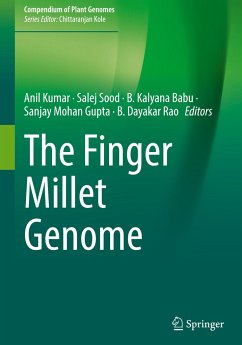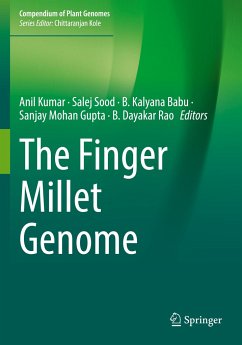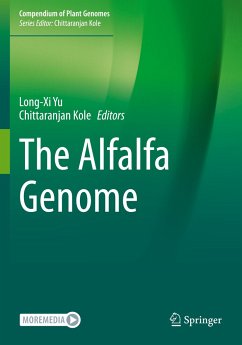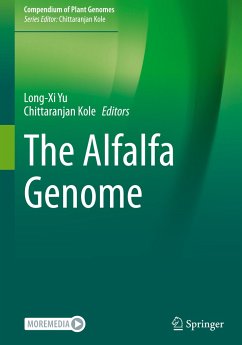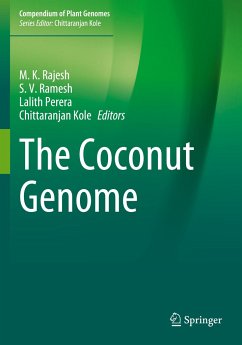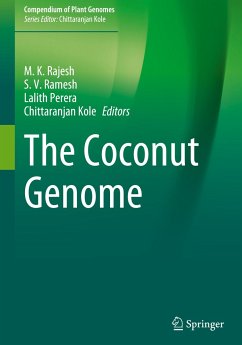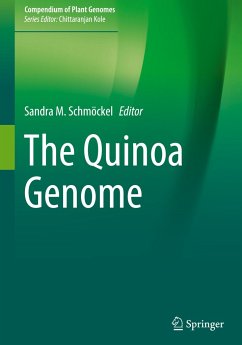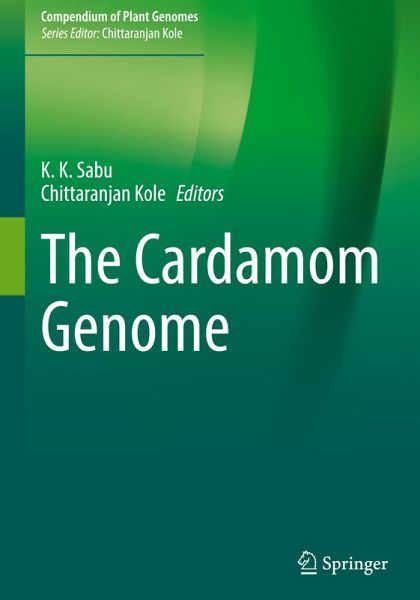
The Cardamom Genome

PAYBACK Punkte
68 °P sammeln!
This book is the first comprehensive compilation of elucidation of the genome of cardamom (Elettaria cardamomum Maton) and its genetic improvement. It includes reviews on the genetic resources, genetics and breeding and in vitro culture in cardamom and molecular characterization of phylogenetic relationship of cardamom of Columbia and Costa Rica. This book presents deliberations on the whole genome sequencing and SSR markers of small cardamom. It also enumerates on the genetics and genomics of biotic stress and host-pathogen interaction, genomics of flavors, and transcriptomics resources and t...
This book is the first comprehensive compilation of elucidation of the genome of cardamom (Elettaria cardamomum Maton) and its genetic improvement. It includes reviews on the genetic resources, genetics and breeding and in vitro culture in cardamom and molecular characterization of phylogenetic relationship of cardamom of Columbia and Costa Rica. This book presents deliberations on the whole genome sequencing and SSR markers of small cardamom. It also enumerates on the genetics and genomics of biotic stress and host-pathogen interaction, genomics of flavors, and transcriptomics resources and their implications and finally functional regulation of mRNAs in cardamom. Altogether, the book contains about 150 pages over 10 chapters authored by globally reputed experts on the relevant field in this crop. The book is useful to the students, teachers, and scientists in the academia and relevant private companies interested in classical genetics and breeding, molecular genetics, structural genomics, functional genomics, plant pathology and plant physiology of cardamom.





